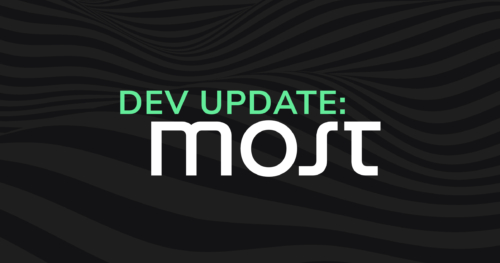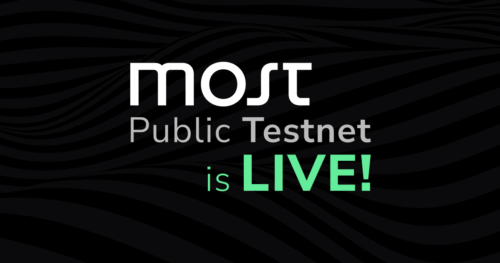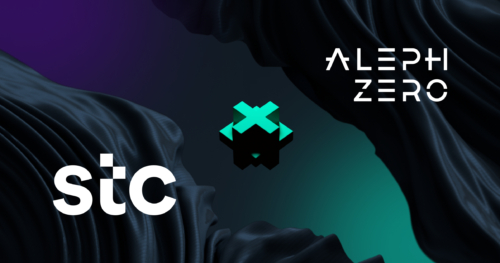Blockchain Adoption in Nigeria
Feb 18, 2022

The latest installment in Aleph Zero’s ongoing series on blockchain adoption in developing countries focuses on Nigeria. Pack your bags! It’s time we go to Lagos!
Over the past few years, emerging economies have come to the forefront of blockchain adoption, with Nigeria being one of the frontrunners. Despite having a not-too-rosy socio-economic situation, the “Giant of Africa,” as fondly called, is making great strides in adopting blockchain’s technological innovation. The sheer numbers involved are probably the most shocking aspect to consider when exploring Nigeria’s affinity for taking advantage of blockchain technology. According to a survey conducted by Statista in 2020, 32% of Nigerians have admitted to using or owning cryptocurrencies. If we consider this number on its own, it’s pretty impressive. It gets even more impressive when we take into account that in 2021 alone global crypto users were pegged at 300 million worldwide.
The Unique Socio-Economic Landscape of Nigeria
Over the last few centuries, Africa has been severely tried by history. The horrors of colonialism, warfare, and slavery resulted in a continent struggling with a plethora of unique challenges. Nigeria is no different and, similarly to many countries on the continent, suffers from a shortage of infrastructure solutions that the citizens of developed countries take for granted. For example, over 60 million Nigerians do not have access to the banking system! A fact made more tragic due to 79% of financially excluded Nigerian adults resides in rural areas.
Additionally, it is no secret that corruption and lack of transparency are the order of the day. Police extortion and land fraud occur regularly. The economic woes that have struck the global economy during the Covid-19 pandemic also made their mark upon the Nigerian economy by driving inflation. This created a thriving black market for exchanging the naira as the government regularly undervalues the national currency.
These challenges resulted in a youthful tech-savvy populace dynamically adopting blockchain technology as their solution. Despite numerous government crackdowns, this impressive adoption rate continues to gain traction, with 2021 being a record year. Nigerians flocked to P2P cryptocurrency trading and investments in the Nigerian blockchain sector soared to new heights. An unquestionable force in dictating this adoption rate is that 70% of Nigeria’s population is under 30, making Nigeria a country consisting almost entirely of citizens who grew up in the Internet age.

The Political Landscape For Blockchain Adoption
Despite the popularity of cryptocurrencies among the general population, the government of Nigeria has shown considerable skepticism and even opposition to the new medium taking root. The matter becomes more confusing when considering that the government’s stance has not been cohesive regarding blockchain technology. In February 2021, the Central Bank of Nigeria (CBN) issued a statement prohibiting financial institutions from dealing with and facilitating transactions in cryptocurrencies. Companies developing blockchain-based technology and services though can operate legally. This turn of events was preceded by a power struggle between the CBN and the Nigerian Security and Exchange Commission (SEC). The two organizations argued over which body should supervise the investments and organizations involved in the Nigerian blockchain ecosystem.
Critics of the ban on cryptocurrencies link the CBN’s brash decision as lashing out over the 2020 protests that erupted against police brutality. The protesters demanded the disbandment of the Special Anti-Robbery Squad (SARS). SARS was a notorious branch of the Nigerian Police Force, associated with conducting unwarranted checks and searches. Other crimes perpetrated by the police unit include arresting and detaining without trial, extortion, kidnapping, murder, theft, and rape. The movement, which came to be known as “End SARS,” initiated nationwide protests.
In response, the CBN targeted protesters’ bank accounts, locking them out of the Nigerian financial system. This disturbing, Orwellian move also targeted organizations who coordinated the protests, leading protesters to resort to cryptocurrencies as a method to circumvent the restrictions. Once the protests ended on October 22nd as a result of a government curfew, Feminist Coalition, one of the organizations behind the protest, issued a statement revealing that 40% of the $387,000 raised for the protests came in the form of cryptocurrencies. Unfortunately for the protesters, the government opted to feign solving the problem. They disbanded SARS and redeployed the problematic officers to different units without prosecuting them.
Introducing the eNaira
In October of 2021, the CBN issued the eNaira, a government-sanctioned cryptocurrency on a blockchain network. This made Nigeria the first African country to create its own central bank digital currency (CBDC), following a global trend initiated by China.
Despite the ban on trading cryptocurrencies, the market managed to flourish. Workarounds popped up that allowed citizens to access their favorite tokens. The eNaira performed poorly, reflecting the general populace’s lack of trust in the ruling class. Fundamental building blocks of this distrust are the government’s obfuscated multi-rate foreign exchange system and the high inflation rates that have plagued the country for years. In December 2021, inflation rates stood at 15.63%, an unhealthy number that ravages any savings citizens may possess. It has become somewhat of a noticeable trend that cryptocurrency use becomes more prevalent in countries suffering from high inflation. A similar story occurs in Nigeria, with digital currencies finding use as hedges against inflation.
The Road to Regulation
At the tail end of 2021, Clem Agba, the Minister of State for Budget and National Planning of Nigeria, stated that the future of cryptocurrency usage in the country should rest in regulating the market. This bold declaration also attacked the CBN for overstepping its boundaries when it decided to penalize the owners of digital assets. According to Clem Agba, the Nigerian constitution does not endow the CBN with such authority. He proposes that the government create a novel regulatory body to monitor the blockchain space.
Such a body would allow both the citizens and governments to fully take advantage of the profits and opportunities offered by the sector. It would also put to rest the quarrel between the CBN and SEC, two institutions that claim to possess jurisdiction over the industry. This confusion stems from the fact that the CBN treats cryptocurrencies as currencies. On the other hand, the SEC views them as securities. Unsurprisingly, tensions were bound to flare up. Clem Agba’s view on the coexistence of legacy finance and cryptocurrencies is a breath of fresh air. It can serve as an impetus to the sector’s development, a sector that, even though marginalized, has made great strides in the past few years.
“I believe it is crucial for all stakeholders to view each player as a key teammate in forging a path towards a healthy crypto space in Nigeria.”
Clem Agba, Minister of State for Budget and National Planning of Nigeria.
Blockchain’s Promise of Progress
A report drafted by Enhancing Financial Innovation and Access (EFInA) offers an optimistic outlook on the potential of blockchain adoption in Nigeria. The report states that by 2030 the blockchain industry can increase Nigeria’s GDP by $29 billion. The report identifies four critical areas in which blockchain technology can facilitate financial inclusion by improving:
- Identity management—innovations in this department will allow for more effective KYC procedures to curtail illegal transactions. These solutions will give both citizens and institutions more transparent records of transaction activities.
- Payment—streamlining P2P transfers, especially those associated with domestic and international remittances.
- Access to finance—the technology can give access to supply chain financing, input financing, micro, and decentralized lending, micro-savings, and investments.
- Land titling and registration—tamper-proof land ownership records can reside on the blockchain.
Progress in these fields can help Nigeria achieve its Sustainable Development Goals. These goals include:
- Reducing poverty.
- Building an inclusive economy.
- Caring for the health and wellbeing of Nigerian citizens.
- Developing better education opportunities.
- Promoting gender equality.
- Creating an atmosphere of peace and security.
Blockchain can assist in this mission by increasing the effectiveness of its Government-to-Person (G2P) programs. It can provide opportunities for the development of micro, small, and medium enterprises (MSME). Additionally, it will foster a broader technological transformation of the country.

Four Institutional Pillars
To bring about the changes described in the previous paragraphs, four key stakeholders must introduce changes that will impact several levels of crypto adoption in Nigeria. This overhaul will revolutionize the institutions’ functioning and will also need to educate the public broadly. Let’s take a look at these four stakeholders and the innovations that must be introduced to create a vibrant and regulated crypto ecosystem.
Regulators
To fully expand on the slumbering potential of Nigeria’s blockchain scene, key decision-makers must introduce flexible regulations. Only a complete reorganization of current privacy laws will allow for the coexistence of blockchain solutions. These democratically elected officials will also be expected to spearhead a dialogue on blockchain technology between the various stakeholders in the blockchain ecosystem. The SEC, CNB, and other Nigerian institutions must cooperate with technology companies to test the potential application of blockchain technology in the public sector.
Financial Institutions
The private sector also has a role in hastening the adoption of blockchain solutions. A key area in which their engagement will be required is in launching industry-wide education campaigns. These programs will inform Nigerians on the impact of this novel technology. A core element of this educational campaign should promote the privacy-enhancing qualities of blockchain. The private sector is also uniquely positioned to address many unbanked citizens’ challenges. Innovations in this sector can significantly improve the populace’s access to the world of finance.
Donor Agencies and Financial Sector Deepening (FSD) organizations
To take advantage of the opportunities provided by blockchain technology requires dynamically operating advocacy groups. These organizations should initiate conferences, hackathons, etc., that will assist in the creation of a healthy local talent pool of programmers and designers that will fuel the growth of budding companies. These third-party actors can also provide objective data that will offer insight into the progress of blockchain adoption. They can also comment on other innovative technologies such as artificial intelligence and Internet-of-Things. Creating a solid Web 3.0 ecosystem also requires the presence of funding desks for fintech startups that will result in greater financial inclusion and assist MSMEs. Finally, advocacy groups find themselves ideally positioned to create broad educational campaigns. Hopefully, these will deepen the awareness of blockchain technology among lay users and financial institutions.
Developmental Institutions
The role of these institutions will be to create a network of regulators and stakeholders to spark industry-wide collaboration. They will also provide technical support for developing the technology and relevant tools within the sector.
Public and Private Sector Organizations Pioneering Blockchain Adoption in Nigeria
Public Organizations
Despite the infighting that is present at the governmental level regarding which entity should oversee the regulatory development of blockchain technology in the country, all institutions involved are aware of the possibilities and profits that the sector will generate. The three most important institutions in this debate are the CBN, SEC, and the National Information Technology Development Agency (NITDA).
The CBN views blockchain technology as one of the top global trends in developing modern financial services. NITDA is in talks with key stakeholders to draft a framework for blockchain adoption in Nigeria and calls for creating a Nigerian Blockchain Consortium (NBC). On the other hand, the Nigerian SEC is working on a set of rules that will dictate the trading of crypto-assets. It will also define what qualities of a crypto-asset make these transactions qualify as securities. Despite these activities, a unified front is still lacking. Hopefully, the next few months will reveal a more concentrated effort of the central government to create a country-wide standard for blockchain adoption.
Private Organizations
Despite the regulatory uncertainties, the blockchain scene is booming in Nigeria. A large number of promising startups provide a wide range of services to the Nigerian populace. Currently, the predominant use-cases include payments and cryptocurrency exchanges, lending, land registration, real estate, commodity exchange, trading, and supply chain management. Let’s briefly take a look at some of the companies forging new paths for blockchain adoption in Nigeria. This list will be hardly comprehensive but will reveal Nigerian entrepreneurs’ breadth of ideas and creativity.
- Busha is one of the leading digital asset platforms in Nigeria. Their mission is to provide an easy gateway into the crypto world for the general populace. Currently, the platform possesses 200,000 registered users and executed 1.5 million trades. Besides providing a platform on which to buy and sell crypto assets, Busha also invested time and effort into educating its users on these novel stores of value by creating a learning platform for “all-things crypto.” When the CNB introduced the ban on trading cryptocurrencies in February of 2021, Busha and many other platforms circumvented this decision by opting for P2P trading. In Q1 of 2021 alone, Nigerians traded over $99.1 million in Bitcoin. In 2021 Busha managed to secure $4.2 million in funding from Jump Capital, Cadenza Ventures, Blockwall Capital, and CMT Digital. The funds will be used to expand into a pan-African trading platform.
- HouseAfrica is a blockchain-based property record system based in Nigeria. Nigeria has over $900 billion locked away in dead-capital, unregistered property that the landholders cannot translate into other forms of capital. A way to remedy this situation is to introduce blockchain-based registries. These databases are a more effective and transparent ways to manage property ownership. HouseAfrica does just that by serving as the middle-man between people and the financial institutions that demand documentation and proof of land ownership before citizens pursue any financial actions that will benefit them and their families.
- Afex has been operating in Nigeria since 2014 as a commodity exchange. It strives to improve the prospects of those engaged in the agricultural sector. Recently Afex adopted a blockchain-based receipt system for its warehouses. The company operates 45 warehouses in Nigeria in which producers store their crops. The producers’ receipt from Afex can serve as collateral to obtain loans from financial institutions. The novel blockchain-based solution employed by Afex has two applications. Firstly, it prevents fraud and corrupt practices by creating an immutable record of transactions. Secondly, it empowers farmers by streamlining the process through which smallholder farms can receive capital for further development.
- Interswitch is a company that focuses on integrated digital payments and commerce by facilitating the electronic circulation of capital. They have recently partnered with Interstellar to provide blockchain-based solutions that will expedite the creation of a Pan-African Payment Ecosystem (PAPE). This initiative built by several banks and fintech players seeks to create a permissioned blockchain ecosystem to solve many of the problems associated with transferring value across borders. PAPE’s creation builds upon the African Continental Free Trade Area (AfCFTA). This collaboration will empower communities and business owners as Africa pioneers blockchain-powered services that will reduce the cost of both local and cross-border payments.

Aleph Zero and Flidy: Driving Blockchain Adoption in Nigeria Together
As we can see, blockchain adoption in Nigeria is growing at an incredible rate. Throughout our series on emerging economies, we’ve shown the growth and determination of entrepreneurs across the globe in crafting new, decentralized solutions for their homelands. Aleph Zero has consistently voiced support for these ingenious activities and hopes to get more “hands-on” in the near future. This makes us incredibly proud and excited about our upcoming collaboration with Flidy.
Dedicated to driving blockchain adoption in Nigeria, Flidy aims to simplify the process through which promising blockchain startups seek funding. Flidy will also provide assistance in developing these businesses. Aleph Zero will cooperate with Flidy as the “go-to” infrastructure layer used by these startups. This has to do with the unique characteristics of our Aleph Zero consensus protocol, including low transaction fees and speed. Crucial elements to consider when taking into account that most Nigerians spend on average $2 daily. Flidy will explore both financial use cases as well as those revolving around land titling and supply chain management. We cannot wait to make our mark on the Nigerian blockchain ecosystem and assist this energetic group of talented individuals in creating a more socially inclusive and prosperous society.


